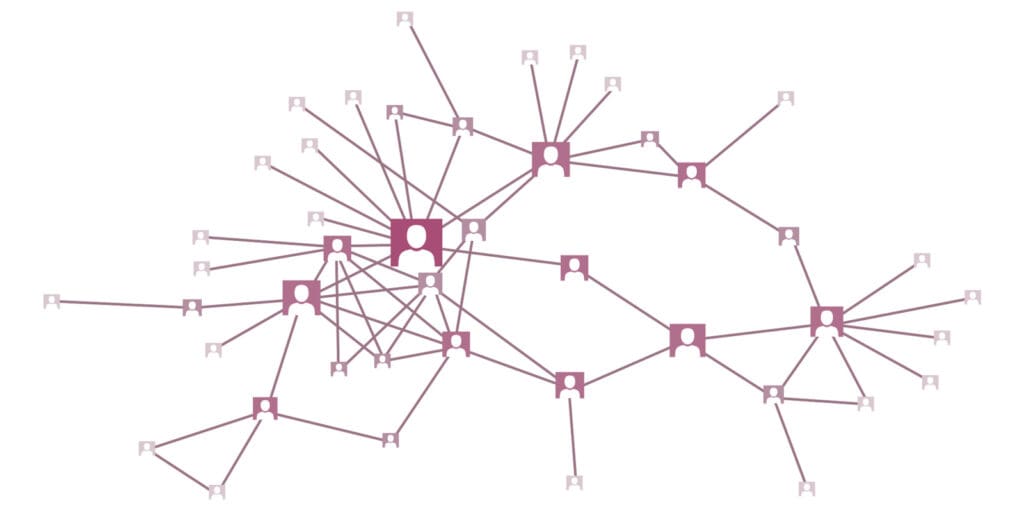ISIS
Blog
Now You See It, Now You Don’t? Moving Beyond Account & Content Removal in Digital Counter-Extremism Operations
June 13, 2018By Lorand Bodo On 25–26 April 2018, a major multinational digital content takedown operation was conducted against the Islamic State (IS). The operation targeted the major online media outlets directly associated with IS. The operation was reportedly successful in collecting digital evidence about IS activities, including the seizure of servers located in Canada, the Netherlands ...
Blog
A Tribal Call to Arms: Propaganda and What PVE Can Learn from Anthropology, Psychology and Neuroscience
June 6, 2018By Alexander Ritzmann The Propaganda Process Is online propaganda really effective? How can it be countered? And what can practitioners of Preventing Violent Extremism (PVE) and policymakers learn from the research findings of other relevant disciplines, such as anthropology, psychology and neuroscience? Propaganda, understood here as the strategic communication of ideas aiming at manipulating specific target ...
Blog
Reverse-Engineering the ISIS Playbook, Part II: CT-CVE Messaging Lessons from ISIS’s English-language Magazines
April 18, 2018By Haroro J. Ingram & Alastair Reed In Part I of this series, the authors presented the key findings of the CTSC Project’s latest publication titled “Islamic State’s English-language Magazines, 2014-17: Trends & Implications for CT-CVE Strategic Communications”. It began by highlighting the limitations inherent to studies of ISIS’s English language messaging before identifying the first ...
Blog
Reverse-Engineering the ISIS Playbook, Part I: CT-CVE Messaging Lessons from ISIS’s English-Language Magazines
April 13, 2018By Haroro J. Ingram & Alastair Reed The challenges associated with confronting militant Islamist propaganda have not waned with the territorial demise of the so-called Islamic State (ISIS). Sure, ISIS’s propaganda output is down overall from the peaks of 2015 and this downward trend has provided the backdrop for periods of particularly sharp declines in mid-2016 and late-2017. ...
Blog
Online Extremism: UK Government’s Islamic State Blocking Tool is Neat but Incomplete
March 28, 2018By Raheel Nawaz The UK government – with considerable pomp and ceremony – recently unveiled a new online tool for detection and removal of jihadi videos boasting a high success rate. It has been claimed by the Home Office that the machine learning tool, which the government developed with ASI Data Science, can identify 94% ...
Blog
Breaking the ISIS Brand Counter-Narratives – Part II: Ethical Considerations in Fighting ISIS Online
March 7, 2018This is the second in a two-part series; part one is HERE. By Anne Speckhard & Ardian Shajkovci Last week’s Blog post described ICVSE’s efforts directing counter narratives into the ISIS-dominated Internet space. This post discusses the ethics of attempting such interventions. As in all our work, our research ethics for Internet interventions with ISIS ...
Blog
Breaking the ISIS Brand Counter-Narratives – Part I: Intervention with Albanian Speaking Facebook Accounts
February 28, 2018This is part one of a two-part series; the second part is HERE. By Anne Speckhard, Ardian Shajkovci, Lorand Bodo & Haris Fazliu It is estimated that of the 38,000 foreign fighters who have joined Sunni militant groups, such as ISIS and al-Nusra, in Iraq and Syria, upwards of 875 have originated from the Balkans, ...
Blog
Online Jihadi Instructional Content: IS’s Rumiyah in 2017
February 21, 2018By Maura Conway and Michael Courtney Jihadi magazines have a long pedigree, are the subject of extensive media coverage and scholarly analysis,[1] and are still easily accessible online. In a recent book chapter, ‘Online Jihadi Instructional Content: The Role of Magazines,’ Conway, Parker, and Looney, focused on the instructional content, both text and images, published in ...
Blog
ISIS’s Online Propaganda and Underlying Psychological Orientations of Its Consumers
January 18, 2018By Matteo Vergani and Ana-Maria Bliuc. Are the psychological factors driving ISIS’s mobilisation in Western countries different from those characteristic of other jihadist groups like al-Qaeda? Does the target audience of ISIS’s English-language online propaganda differ from that of al-Qaeda? If so, then how? In our new journal article, we examine these questions by analysing the ...
Blog
How the Islamic State Uses ‘Virtual Lessons’ to Build Loyalty
December 13, 2017By André Gagné and Marc-André Argentino The Islamic State has lost most of its territory and key cities like Mosul and Raqqa, and more recently Deir al-Zour and al-Qaim, have fallen to the global coalition fighting the terrorist group. In the face of such challenges, it’s tried to maintain legitimacy through what some have called a virtual caliphate. Within ...








